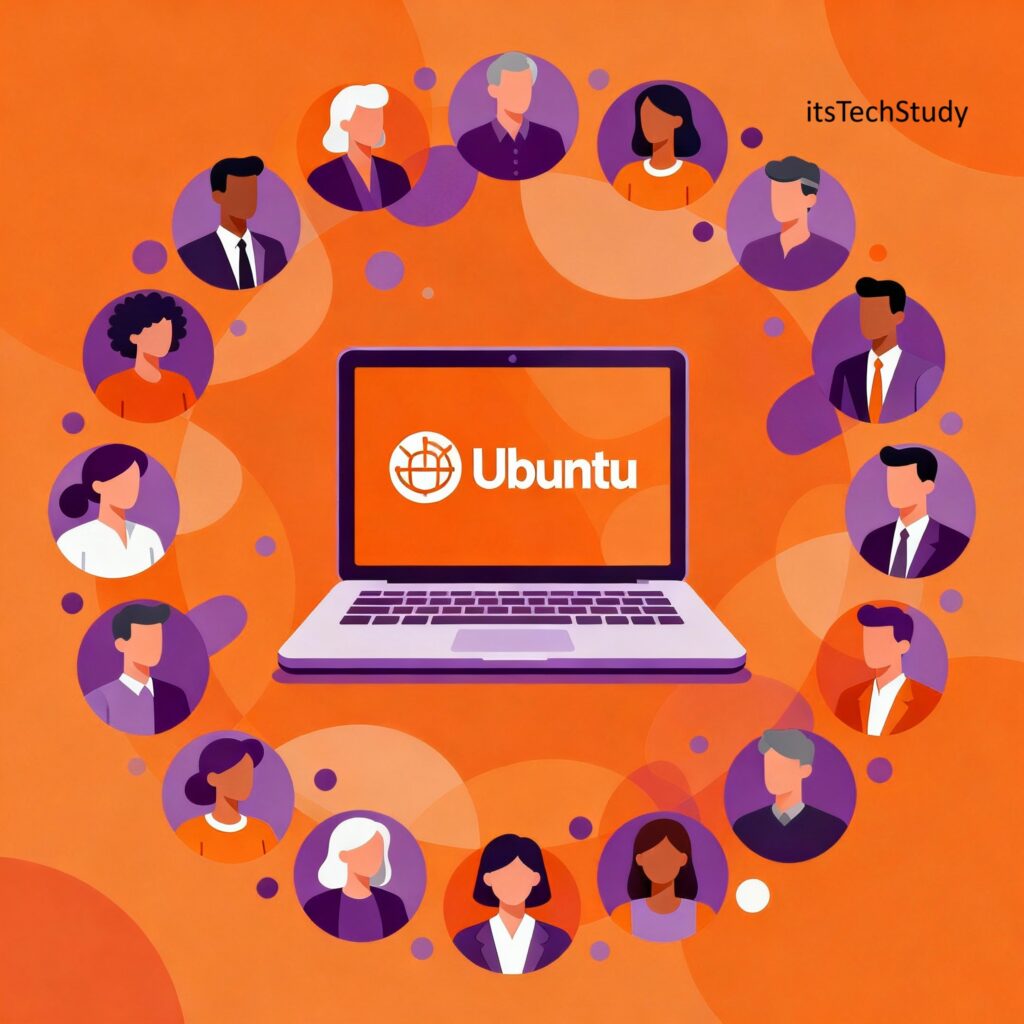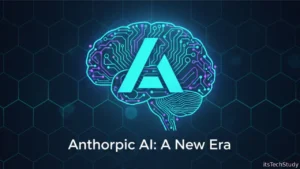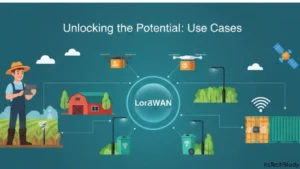Introduction: The Open-Source Revolution That Never Stopped
Back in the early years of personal computing, software titans like Microsoft and Apple dominated the digital landscape. Operating systems were closed, costly, and tightly managed. And then came open-source software, a concept that flipped this paradigm on its head. It permitted anyone, anywhere, to examine, change, and enhance code – creating an explosion of innovation that continues to define modern tech.
At the forefront of this revolution is Ubuntu, an operating system based on Linux that has come to represent open-source advancement. Since its release in 2004 by Canonical Ltd., Ubuntu has evolved from a specialist option for technology enthusiasts to become an international icon of collaboration and innovation.
Today, in 2025, Ubuntu still runs servers, cloud systems, IoT devices, and even AI development platforms. But why is Ubuntu the core of open-source innovation – and why does it remain relevant in a world dominated by artificial intelligence, cloud computing, and automation? Let’s take a look.
Ubuntu continues to be a cornerstone of open-source innovation, offering a powerful, secure, and user-friendly Linux-based operating system trusted by developers, enterprises, and technology enthusiasts worldwide. Its strong community support, frequent updates, and long-term stability make Ubuntu a preferred platform for cloud computing, software development, AI research, and server infrastructure. With its commitment to transparency, collaboration, and open standards, Ubuntu fosters an environment where innovation can thrive-enabling users to customize, experiment, and contribute back to a shared ecosystem. As organizations increasingly embrace open-source technologies to reduce costs and improve flexibility, Ubuntu remains a driving force in shaping the future of digital transformation and empowering the next generation of technological breakthroughs.
What Is Ubuntu? A Quick Refresher
Ubuntu is an open-source and free operating system based on the Linux kernel. It provides a friendly interface, robust community support, and support for thousands of open-source applications.
Developed with the concept of “humanity to others,” Ubuntu was created to make it possible for everyone – from home users to enterprise IT teams – to use Linux.
Key Features of Ubuntu
- Free and open-source: No costs, ever.
- Regular releases: New release each six months and Long-Term Support (LTS) every two years.
- Secure and stable: Ships with intrinsic security patches and updates.
- Extremely customizable: Users can customize nearly every component of the system.
- Cloud and server ready: Ubuntu drives millions of cloud instances and web servers across the globe.
The Role of Ubuntu in Today’s Technology Landscape
Ubuntu is more than an operating system – it’s a platform for innovation in many industries. Whether it’s startups creating apps for the next generation or enterprises running cloud platforms, Ubuntu is the foundation.
- Cloud Computing and Servers
Ubuntu leads in the cloud and server market, running on AWS, Google Cloud, and Microsoft Azure platforms. Canonical states that more than 40% of public cloud workloads are powered by Ubuntu.
Its openness, scalability, and stability qualify it as the first choice for hosting containers, microservices, and virtual machines.
- Artificial Intelligence and Machine Learning
AI and ML programmers adore Ubuntu due to its support for platforms like TensorFlow, PyTorch, and OpenCV. Ubuntu AI ecosystem supports optimized libraries and GPU, ensuring faster model training and deployment.
- Internet of Things (IoT)
Ubuntu Core — a minimal version of Ubuntu — runs IoT devices such as smart home controllers, industrial monitors, and robotics. It has a modular architecture that guarantees automatic, secure updates and low maintenance.
- Software Development and Education
Global developers make use of Ubuntu as a development-friendly environment. It is capable of supporting a variety of programming languages and offers seamless access to compilers, libraries, and APIs.
For students and teachers, Ubuntu provides a cost-effective door to computing, closing the digital divide in the developing world.
Ubuntu vs. Other Operating Systems: A Quick Comparison
| Feature | Ubuntu (Linux) | Windows | macOS |
|---|---|---|---|
| Cost | Free and open-source | Paid license | Paid (with hardware) |
| Security | High (community-driven patches) | Moderate | High |
| Customization | Fully customizable | Limited | Minimal |
| Performance | Efficient, lightweight | Heavier resource use | Optimized for Apple hardware |
| Target Users | Developers, enterprises, students | General users, businesses | Creators, professionals |
| Software Availability | Wide range of open-source apps | Extensive commercial apps | Apple ecosystem apps |
Ubuntu’s adaptability, community-driven support, and security benefits render it the go-to platform for innovation and experimentation that closed systems can’t compete with.
Why Ubuntu Remains the Soul of Open-Source Innovation

- An Unsleeping Global Community
Ubuntu succeeds thanks to its dynamic community – millions of global developers, contributors, and users who work actively to improve it. This ongoing collaboration drives innovation well beyond what conventional companies can manage.
- Open Access to the Latest Technology
Ubuntu is an experimental platform for the newest technology trends — from AI research to quantum computing breakthroughs. Canonical regularly works with technology titans to incorporate the latest features before they hit the masses.
- Stability Meets Innovation
It is unlike most experimental Linux distributions since Ubuntu gets a balance between stability and advancements. Long-Term Support (LTS) versions guarantee stability for five years, making them perfect for companies that require reliable systems.
- Freedom and Transparency
Ubuntu’s openness to source code guarantees that anyone can look into the code — the exact opposite of closed-source systems in which people have to rely on corporations blindly. The openness instills trust, improves security, and promotes collaboration.
- Sustainability Through Open Collaboration
In the era of moving towards greener technology, Ubuntu is a contributor to sustainability. Open-source software fosters hardware longevity by making it possible for users to use newer systems on older hardware, thereby curbing electronic waste.
Pros and Cons of Ubuntu
Pros:
- Absolutely free to use and distribute
- Secure with few malware threats
- Lightweight and works efficiently on older hardware
- Gets regular updates and community support for the long term
- Perfect for developers and programmers
- Supports cloud and AI tools
Cons:
- Limited access to some commercial applications (such as Adobe programs)
- Could require terminal knowledge for advanced configuration
- Fewer games available than Windows
- Some equipment (such as printers) may require installing drivers manually
How Ubuntu Powers the Future of Technology
Ubuntu is ingrained in the digital fabric of today’s world. Here’s how it still shapes the future:
- Powering AI Development: Its open platform speeds machine learning tests and data analysis.
- Propelling Cloud Growth: Large cloud service providers use Ubuntu for scale and price efficiency.
- Enabling Edge and IoT Solutions: Ubuntu Core is transforming the world of smart cities and smart devices.
- Facilitating Education and Digital Literacy: Education institutions utilize Ubuntu to instruct programming and digital literacy.
- Advocating Ethical Technology: Open values resonate with international appeals for open, equitable, and sustainable tech environments.
How to Get Started with Ubuntu (Beginner’s Guide)
If you want to give Ubuntu a try, this is how you can get started:
- Download Ubuntu: Go to ubuntu.com/download.
- Create a Bootable USB: Use software such as Rufus or Balena Etcher.
- Try Before Installing: Ubuntu allows you to test it from USB directly without modifying your system.
- Install Ubuntu: Follow the prompts for dual-boot or standalone installation.
- Customize and Explore: Install applications, modify themes, and look around in the Software Center.
Conclusion: The Pulse of Open-Source Innovation
Ubuntu’s history is not just an operating system – it’s a living testament to open collaboration. In 2025 and beyond, Ubuntu remains the pulse of the open-source community, fueling innovation in cloud computing, AI, and IoT.
For developers, companies, and consumers alike, Ubuntu is freedom, imagination, and advancement – principles that shape the future of technology.
If the past two decades of Ubuntu have proven anything, it’s this: when technology belongs to everyone, innovation never stops.
FAQs About Ubuntu
Q1: Is Ubuntu really free to use?
Ans: Ubuntu is completely free — no subscriptions, no licenses. You can use, copy, and distribute it freely.
Q2: Can I run Windows applications on Ubuntu?
Ans: Some Windows apps can run using tools like Wine or Proton, but not all software is compatible. Many open-source alternatives exist.
Q3: Is Ubuntu good for gaming?
Ans: Gaming on Ubuntu has improved significantly with Steam for Linux and Proton support. However, not all games perform as well as on Windows.
Q4: How often is Ubuntu updated?
Ans: A new version is released every six months, while LTS (Long-Term Support) versions receive updates for five years.
Q5: Can Ubuntu replace Windows or macOS completely?
Ans: For most users — yes. It covers daily needs like browsing, media, and productivity, though some specialized software might still require other platforms.
Q6: Is Ubuntu safe from viruses?
Ans: Yes, Linux systems like Ubuntu are inherently more secure. While no OS is 100% immune, Ubuntu’s permission-based structure minimizes risks.












No Comments Yet
Be the first to share your thoughts.
Leave a Comment